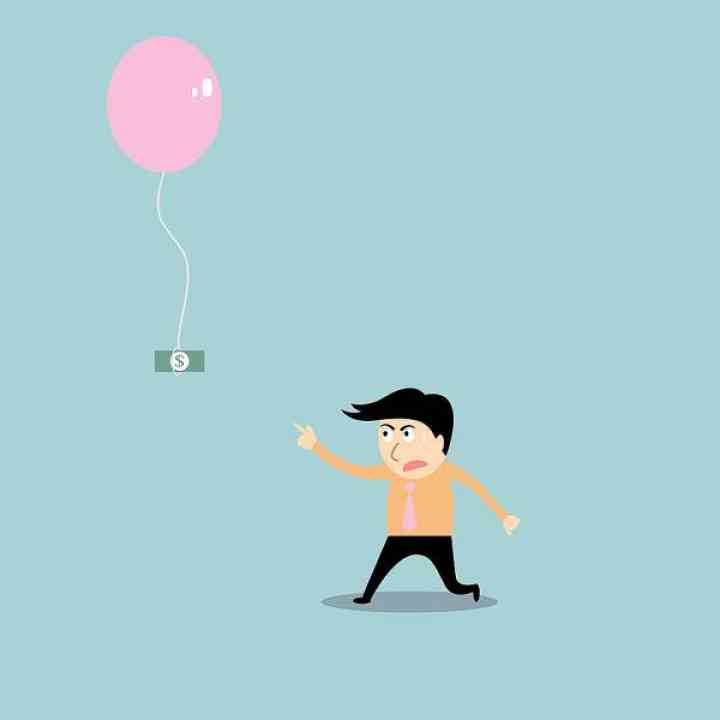Are We Destined to Fail as Entrepreneurs?
The growing number of creative professionals that venture into entrepreneurship raises doubts and concern.

Featured Contribution
- Comments:
- 5
- Votes:
- 10
- ES
Starting a business is not an easy task, but as creative professionals we suddenly decide to do it nonetheless. Are we prepared to become entrepreneurs? Do we have the necessary abilities or is it because we acquired innovation and creativity as our tools that we may be naive when it comes to undertake a business of our own?
Why do the creative decide to start a business?
The answer is simpler and more obvious than it seems: scarce job opportunities, low salaries and little room for growth within corporations.
According to a study that took place in Mexico in 2013 by a! diseño1 magazine, a junior graphic designer (1-5 years of experience) has a monthly salary in a range between $510 and $680 US dollars. For comparison, a study by Grupo Universo Laboral,2 an engineer in Mexico makes between $680 and $1230 US dollars a month.
Why does this happen? As it is known, most Latin American countries base their economies in primary industry (oil, mining and agriculture) or in manufacture and assembly plants that produce any kinds of goods. These companies do not need a Design Department, or if they have it, it is located in the country of origin (Europe, Asia and the US). Even more, design, especially industrial, is a post-war profession that responds to a time when Europe's economy was completely devastated, when industry had almost disappeared and there was a need for artisans and handymen with the ability to solve problems with industrial tools and processes.
However, nowadays global economy is shifting to the development of services and other intangibles. Around the world, designers are adapting but in Latin America we still prepare professionals for a semi-industrialized world that no longer exists and has no job market. That is why there is an evident growth in the activity of entrepreneurs with a creative background (creative industries entrepreneurs, as referred by Fernando Del Vecchio).
¿Are we really prepared to be entrepreneurs?
Without the fear to be wrong, no, most of us are not. Our training as creative professionals does provide us with a methodology centered in divergent thinking and great observation and opportunity-detection abilities. However, this is not enough; an entrepreneur must be, above all, “tolerant to uncertainty”, able to deal with the unknown, manage the intangible, know how to solve problems in times of crisis and with limited resources.
We must understand that when undertaking a project or creative venture, design by itself is not enough as added value or differentiating element against competitors. If we design shoes, our shoes not only compete with other “designer shoes”, but with all the other shoes in the market. This does not only involve product development, but also price, convenience, location of the points of sale and strength of the brand to convey its added value to consumers.
The success of our products or services is not in how innovative it is or its value proposal, but in the degree that our consumers perceive them. This leads us to a very interesting concept presented by E. M. Rogers in his essay “Theory of Innovation”,3 presented as a Relative Advantage: “It is the degree in which an innovation is perceived above the initial concept that precedes it”. In other words, the capacity of consumers to perceive the innovation in a product, regardless of the objective innovation of the product itself (technical aspects, performance, price).
“The greater the perceived relative advantage of an innovation, the greater the index of adoption.”
An entrepreneur requires exceptional sales skills, clarity to convey the competitive advantages of his product, to understand his client and even more importantly, to speak his language. The market, universities and corporations cannot be more different. When starting a business there is no teacher, boss or specialist to tell us if our work is good, if we reach the goals or if we made mistakes; there are no grades and our professional background does not guarantee clients. The market is unforgiving, it is black or white: it does not know half-measures, it accepts or rejects you.
¿Are we too naive when starting a business of our own?
In a way, yes. Our biggest strength is also our greatest weakness: “design”. The rest of the world does not see things like we do. There is nothing wrong with this, but whining is useless. If we wish to sell or be hired it is us who have to change. Design clearly adds value to any kind of business that aims to sell a product or service; that is not the problem, it is the needs and purchasing power of Latin Americans.
If we look closely to Maslow's Hierarchy of Needs,4 we will find the physiological needs at the base, followed by security, social belonging, self-esteem and self-realization. In what part of the hierarchy do you think we Latin Americans are? The majority are in the lower part of the structure. Where is design? In most cases, up high. This is why unless we understand the role of design in Latin America we will most likely make fools of ourselves by idealizing a reality that only exists in certain small circles or that is a mirage, caused by the thirst for a better reality.
¿What is the solution?
Let's use our abilities, let's learn what we have to learn, let's observe and understand the industry that we wish to enter. Let's know that in the entrepreneur's way there are no maps or defined routes, success is not guaranteed and the only certainty is our will to overcome adversity.
Boost your career
Don’t just stop at reading. Discover our updating and specialization programs to take your professional profile to the next level.
View Academic OfferShare
Please value the editorial work by using these links instead of reproducing this content on another site.

- Sueldos Diseñadores México 2013 (Salaries of Designers in Mexico 2013. a! diseño Magazine).
- Sueldos Ingenieros México 2013 (Salaries of Engineers in Mexico 2013. Grupo Universo Laboral)
- Rogers, E. M. Theory of Innovation.
- Pirámide de Necesidades de Maslow (Maslow's Hierarchy of Needs).
Topics covered in this article
What do you think?
Your perspective is valuable. Share your opinion with the community in the discussion.
Comment now!



